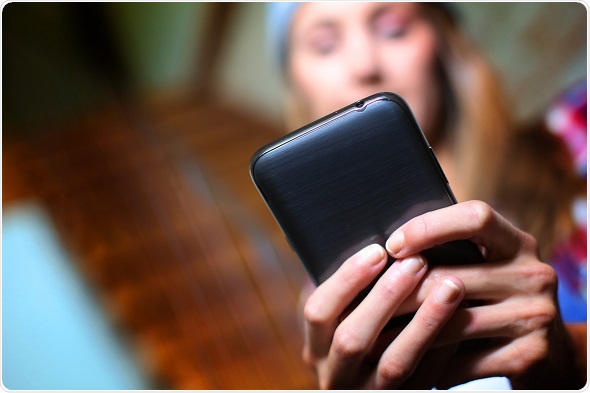A small study conducted by Northwestern University Feinberg School of Medicine has shown that the time spent using a smart phone in conjunction with GPS location sensor data can be used to signal the development of depression.
Mild depression can be hidden from friends and colleagues through fake smiles and white lies, but apparently it cannot be hidden from your smart phone. Depression can be detected from your smart phone by tracking the number of minutes you use the phone and your daily geographical locations. Individuals who are depressed spend an average of 68 minutes a day using their mobile phone, compared with only 17 minutes among patients who are not depressed. Similarly, spending most of your time at home or having an erratic daily schedule can also be indicative of depression.

Goodluz / Shutterstock.com
Senior author David Mohr explained “People are likely, when on their phones, to avoid thinking about things that are troubling, painful feelings or difficult relationships. It’s an avoidance behaviour we see in depression...When people are depressed, they tend to withdraw and don’t have the motivation or energy to go out and do things”.
The Northwestern study tracked 28 adult participants (20 female, 8 male, average age 29 years) from the general community using a mobile phone sensor data acquisition app. The participants completed a questionnaire (PHQ-9) that asks about symptoms of depression, such as sadness, loss of pleasure, sleep disturbances. They then carried a mobile phone for2 weeks, which tracked the amount of time it was used and recorded its GPS location every 5 minutes.
Using these data collected by the mobile phones, the researchers identified those participants who had depressive symptoms with 87% accuracy. In fact, the smart phone data detected depression more reliably that the PHQ-9 questionnaire, which is routinely used to diagnose depression.
Mohr remarked “The significance of this is that we can detect if a person has depressive symptoms and the severity of those symptoms without asking them any questions...We now have an objective measure of behaviour related to depression.”
The research shows that it is possible to passively detect depression without needing any effort from the individual concerned. Ultimately, this could enable routine monitoring of people at risk of depression so health care providers can intervene more quickly.
The app may also be able to help people with depression, as lead author Sohrab Saeb explained “We will see if we can reduce symptoms of depression by encouraging people to visit more locations throughout the day, have a more regular routine, spend more time in a variety of places or reduce mobile phone use”.
Sources:
Northwestern University News 15 July 2015. Available at: http://www.northwestern.edu/newscenter/stories/2015/07/your-phone-knows-if-youre-depressed.html
Saeb S et al. Mobile Phone Sensor Correlates of Depressive Symptom Severity in Daily-Life Behavior: An Exploratory Study. Journal of Medical Internet Research 2015;Vol 17(No 7). Available at: http://www.jmir.org/2015/7/e175/